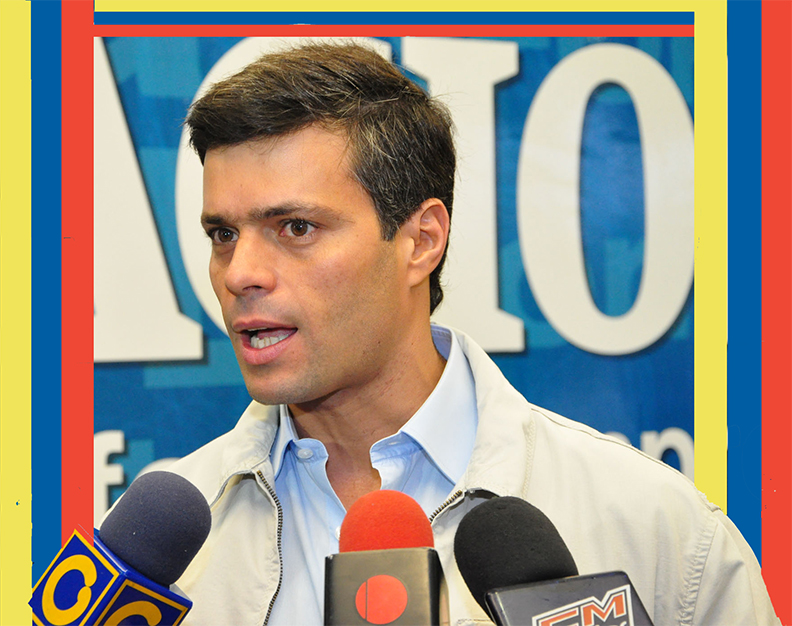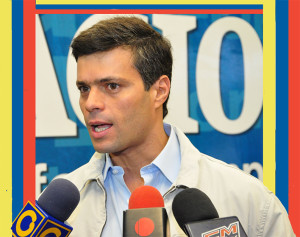Dissent in Venezuela: Leopoldo Lopez
 Lopez speaking with the media (4)
Lopez speaking with the media (4)
On December 6th, the Venezuelan people will go to the polls. Much has been written about the major issues being voted on and concerns over the democratic fairness that the election will have. For a broader overview of this I might suggest checking out this article from another member of the MIR team.

What I want to focus on here though is the silencing of one of the main leaders of the opposition to the current government of Nicolas Maduro, Leopoldo Lopez. Lopez, who holds a Master’s from Harvard, has been a polarizing figure in Venezuelan politics since he became mayor of a district of Caracas in 2000. In 2008, Lopez was subsequently blocked from running again due to charges that he misused public funds, accusations that have been criticized as politically motivated (1). In 2014, after playing a role in organizing parts of the mass protests against the government that took place in Caracas, Lopez was jailed by Maduro’s regime in February of that year. This September he was convicted of inciting violence and was sentenced to fourteen years in prison after a closed door trial that human rights activists have condemned as politically motivated and deeply flawed (2).
So why am I writing about this now?
Just last week, one of the Venezuelan prosecutors that helped jail Lopez, Franklin Nieves, fled to the United States claiming that Lopez is indeed innocent and the arrest and conviction were plotted by the government (3). This of course points to serious concerns about the proper functioning of democracy and the rule of law in Venezuela and does not bode well heading into a supposedly democratic election, which requires freely informed engagement of citizens.
If Lopez has been silenced purely because of dissent, it would make sense that a prosecutor who is revealing this, and thus dissenting in his own right, would fear his own security. These are serious topics in human rights discourse. Prosecution for dissent violates the presumption of equality before the law regardless of political opinion and the freedom from arbitrary arrest and detention. In my opinion, this ought not to be taken lightly. History is rife with examples of human rights abuse that have been preceded by the silencing of legitimate dissent.
This will be something to keep an eye on in the weeks ahead.
(1) http://www.bbc.com/news/world-latin-america-26238612
(2) http://www.theguardian.com/world/2015/sep/11/venezuela-opposition-leader-leopoldo-lopez-sentenced-to-14-years-in-jail
(3) http://www.theguardian.com/world/2015/oct/27/venezuela-prosecutor-opposition-leader-leopoldo-lopez-government-plot
(4) Photo: https://www.flickr.com/photos/adavey/12637515934/in/photolist-kfJzcL-qR4Vge-tRpELQ-a36ee9-a33nKK-idmTAc-a36ebw-a36ejb-a33nst-a36e17-a33ppa-a36e6J-a36kTE-a36dW5-a33v7x-a36gnC-a36n3y-a33s3K-a33nye-a33u9R-a33nEg-a33sZB-a36ecS-a33r4R-a33szF-sbKqdL-4sLgfx-a33nYe-a36h1G-a36jUh-a36ea3-a33o3D-sti7gp-st9K2N-sr2MCj-st9JRs-sbSj5Z-sbJjJj-sr2Mwh-sbKq47-5j2hEG-5iWZSZ-rdThjA-rcXNDS-9nePnx-9nePoF-ybqZpd-aw9tLo-axMs8q-uQR44e
